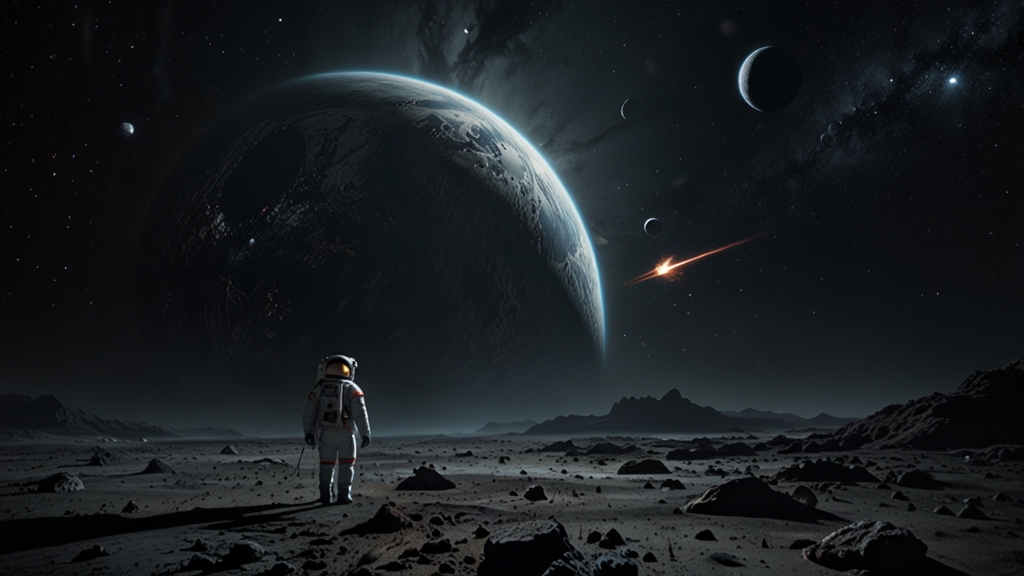The Dark Side of Space Exploration: What We Overlook
Space exploration is often hailed as one of humanity's greatest achievements, capturing the imagination of people across the globe. From landing on the moon to the mission of rovers on Mars, each milestone symbolizes our relentless quest to break boundaries and understand the universe. However, beneath this romanticized facade lies a myriad of challenges and consequences that we often overlook.
Environmental Impact
One of the least discussed but most significant issues is the environmental impact of space missions. Every rocket launch contributes to atmospheric pollution, releasing propellants that damage the ozone layer. The accumulation of space debris, ranging from discarded satellites to minute fragments from collisions, presents an additional threat. As the volume of debris increases, the risk of collisions with operational spacecraft, including those hosting human life, escalates dramatically.
Financial Costs
Another aspect that doesn’t always hit headlines is the staggering financial cost of these missions. Governments allocate billions of dollars to space programs, funds that might otherwise be spent on pressing issues here on Earth, such as healthcare, education, and poverty alleviation. The opportunity cost of these investments should not be underestimated, as they have direct implications for societal well-being.
“The more we strive to understand what lies beyond, the more we run the risk of neglecting the immediate and tangible issues that plague our planet.”
Ethical Considerations
Ethical dilemmas also accompany space exploration. For instance, the potential contamination of other celestial bodies with Earth life forms raises serious ethical questions. The introduction of organisms from Earth could irreparably harm potential ecosystems on these bodies. Moreover, the exploitation of resources in space, such as mining asteroids, introduces the risk of repeating the exploitative practices witnessed in human history, but on an interplanetary scale.
Human Health Risks
Human space travel is fraught with physical and mental health risks. Astronauts face increased exposure to harmful cosmic radiation, bone density loss, and muscle atrophy due to prolonged periods in microgravity. Mental health, too, is a concern, as isolation and confinement can lead to psychological distress. The long-term effects of these stressors are still under study, and the risks compound the farther from Earth astronauts venture.
“Our bodies are designed for life on Earth, not the vacuum of space. As we push into the cosmos, we must grapple with the limitations and vulnerabilities of our biology.”
Political and Social Tensions
Space exploration is also not immune to geopolitical tensions. The space race during the Cold War era highlighted how space can become an arena for demonstrating national prowess. Today, with more countries and even private companies joining the fray, space could become a contentious domain. The potential for conflicts over territorial claims, resources, and strategic advantage in space should not be underestimated.
The Psychological Impact on Society
While the idea of space exploration fascinates many, it can also lead to societal disillusionment. When high-profile missions fail, they can dampen public enthusiasm and erode support for scientific endeavors. Moreover, the emphasis on space can sometimes lead to a form of escapism, where the idea of a ‘new frontier’ diverts attention from the critical issues at home that need immediate addressing.
“In our quest to conquer new frontiers, we must not lose sight of the fact that Earth is still our only home.”
Conclusion
Space exploration holds immense potential for scientific discovery and technological advancement, but it is crucial to weigh these benefits against the associated costs and risks. By acknowledging the darker aspects of space endeavors, we can strive for a balanced approach that safeguards our planet, judiciously utilizes resources, and ethically engages with the cosmos. Space is the final frontier, but it's one we must approach with both ambition and caution.





